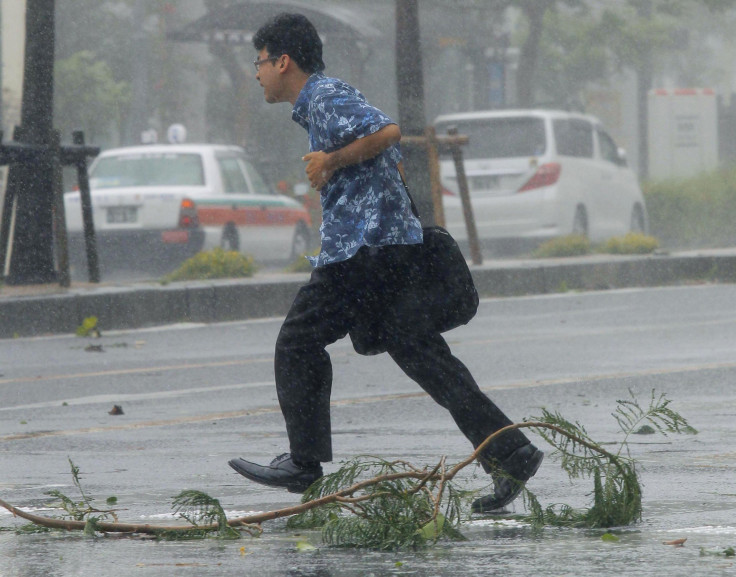Typhoon Neoguri Prompts Airport Closures, Evacuation Orders In Okinawa

Typhoon Neoguri, one of the most powerful storms to hit Japan in decades, brought torrential rain and high winds to the southern Japanese island of Okinawa on Tuesday, closing local airports and prompting authorities to issue orders to evacuate more than half a million people.
Hundreds of flights were cancelled in Japan and nearly 550,000 people were asked to leave the area early Tuesday. Four people were injured and one man was reported missing from a fishing boat, Associated Press reported, citing the Okinawa government, while the Japan Meteorological Agency, or JMA, reported that the intense typhoon had generated a wind rush of 184 miles per hour, or mph, with sustained winds of 120 mph.
“Please take refuge as early as possible," Keiji Furuya, chairman of the National Public Safety Commission, reportedly said," adding that “people must take the utmost caution.”
According to Reuters, an oil refinery in the region had to halt its operations, while more than 50,000 households remained without electricity.
While the region has not reported serious damage yet, it cannot be ruled out if the massive storm makes landfall as expected on Thursday or Friday. The storm is expected to turn east, which could cause extensive flooding in Kyushu, in southwestern Japan, which is home to two nuclear plants.
"We will continue to maintain close coordination between ministries and will take all necessary measures to respond to the typhoon," Yoshihide Suga, a government spokesman, said, according to The Wall Street Journal.
The typhoon is expected to move up the main island of Honshu after making landfall in Kyushu and come close to Tokyo on Friday, Reuters reported, citing a JMA official.
"But it will be weaker by then, so that Tokyo can mainly expect a lot of rain, and maybe some gusts of wind," the official reportedly said.
© Copyright IBTimes 2025. All rights reserved.





















